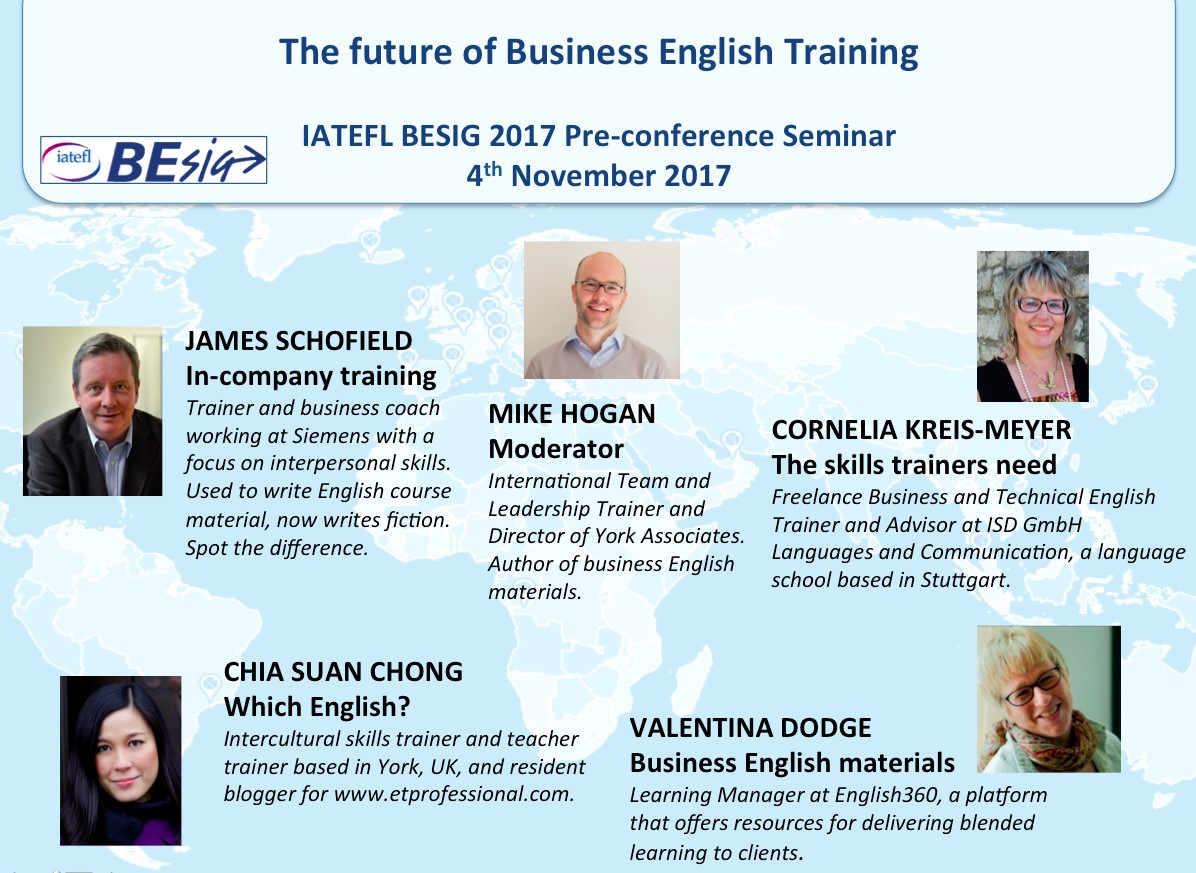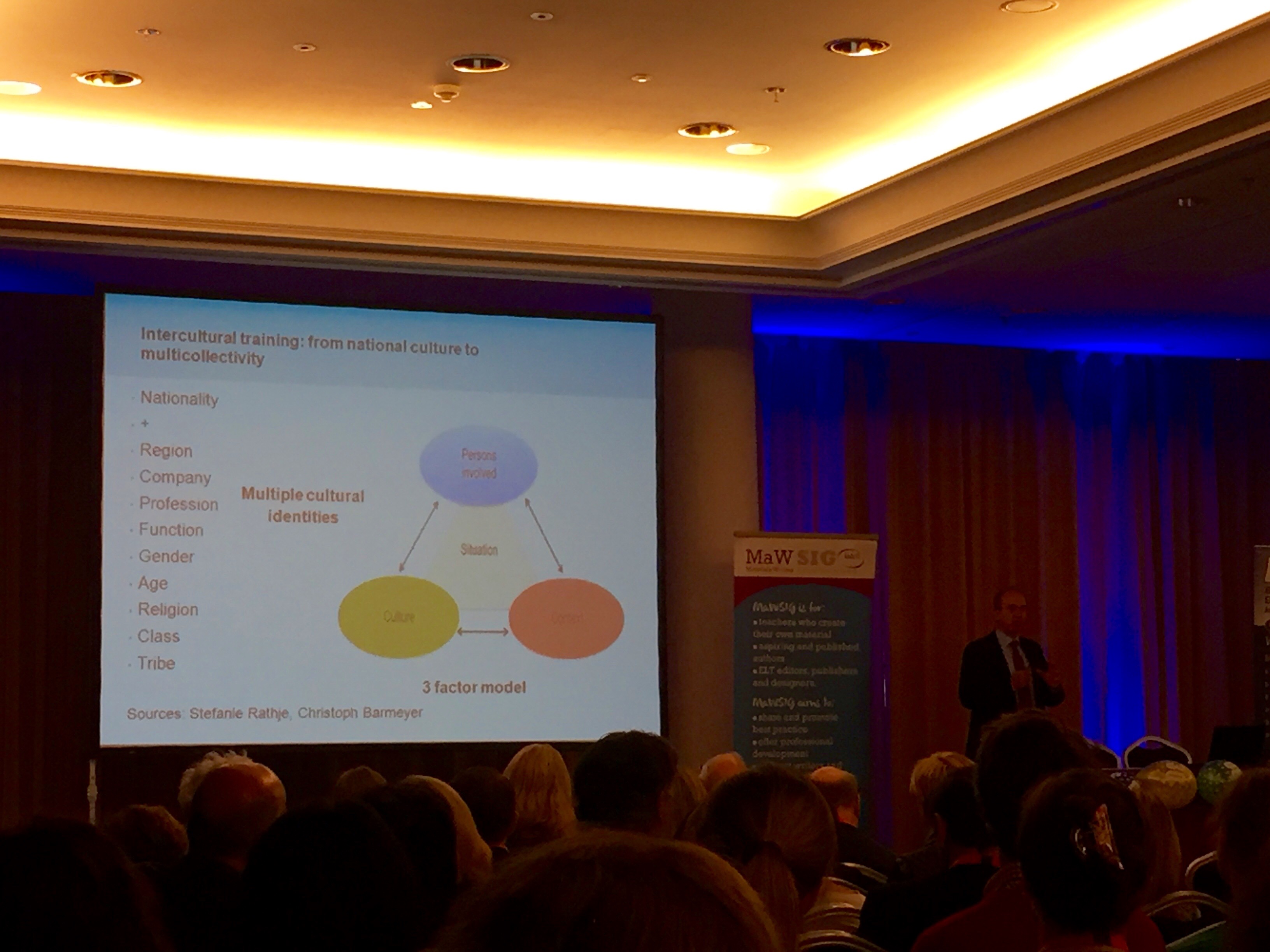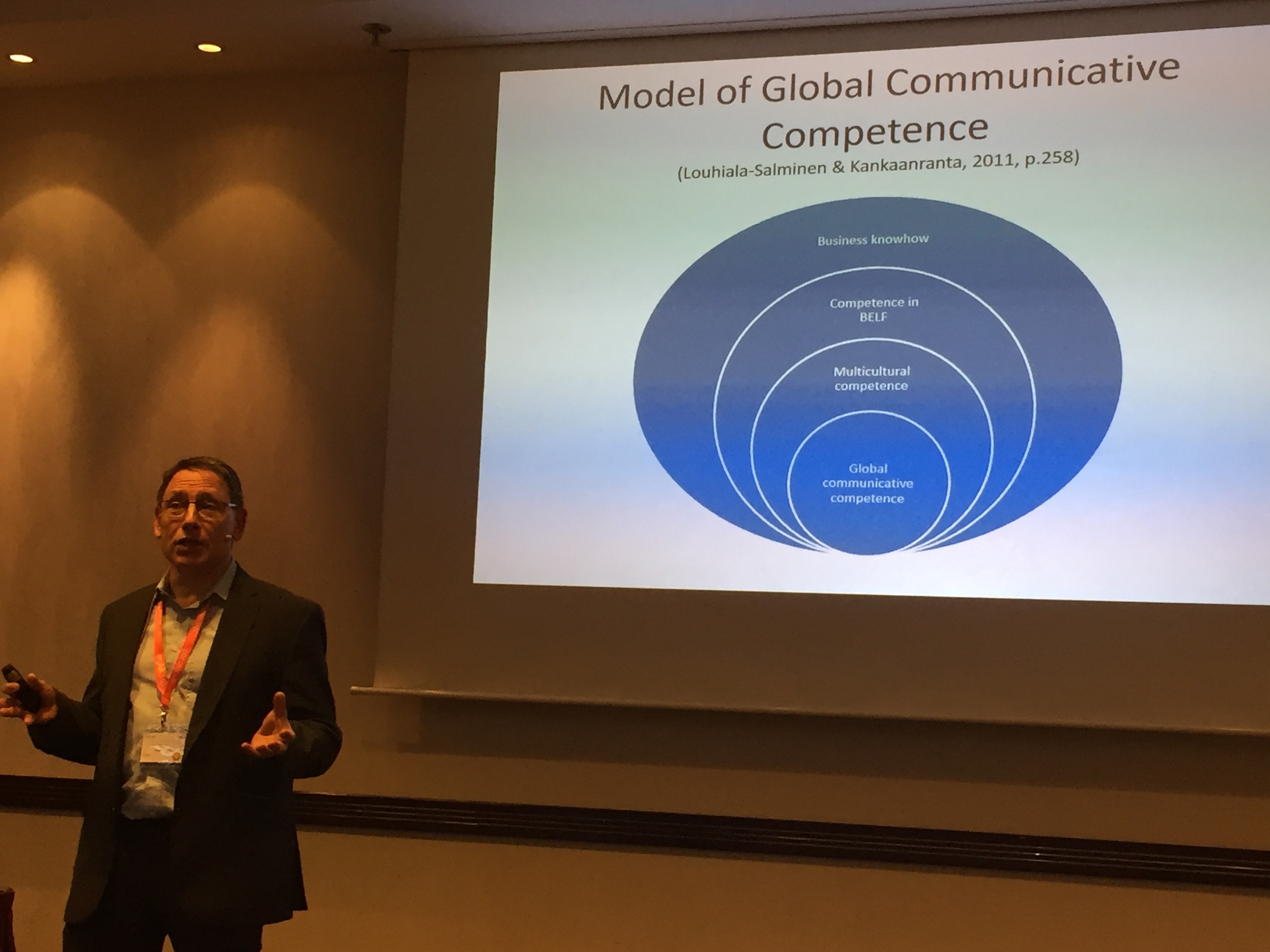The Future of (Business) English teaching and BESIG 2016

Last weekend, a group of English trainers gathered in Munich for the IATEFL BESIG (Business English Special Interest Group) annual conference, organised in collaboration with MaWSIG (Materials Writing Special Interest Group).
In an industry that focuses on the training of clients who are learning English for a very specific need, Business English trainers are accustomed to tailoring a course to suit the learner, teaching English as a tool for effective global communication and not teaching grammar for grammar’s sake.
This is an industry whose infrastructure for training is not confined to the state school system or private language schools, but has long seen trainers delivering language training in companies and trainers under the full-time employment of corporations who choose to embed them as communication consultants in their day-to-day proceedings. Such trainers witness the use of English as a lingua franca amongst non-native speakers on a daily basis and recognise that the measure of a successful interaction is not one of lexico-grammatical accuracy, but of clarity and mutual understanding.
For an industry that is pushed to be forward-thinking and customer-focused, foresight is critical. And discussing the topic of ‘The future of business English training’ at the BESIG pre-conference seminar was a panel comprising of James Schofield, Cornelia Kreis-Meyer, Valentina Dodge and me, with Mike Hogan as the moderator.

flyer of PCS panel speakers
James kicked off the discussion with an anecdote about the lavish hotels where two-week intensive language courses used to be conducted in. However, today, with a smaller training budget and a higher average level of English among employees, companies are reconsidering the type of language training they are sending their employees on. In line with James’s suggestion, Cornelia looks beyond English teaching skills, and considers skills like facilitation and coaching skills, soft skills, interpersonal skills, digital skills, and even skills for teaching language to a robot.
While I spoke about the need to get away from the presumed end goal of speaking English like a ‘native speaker’, and move towards the soft skills needed to become an effective international communicator (e.g. accommodation skills, intercultural skills), Valentina explored the trend towards greater specificity and singularity in the learning materials we use with our learners.
(For a blogpost summarizing this year’s BESIG Pre-Conference Seminar, go here.)

Robert Gibson on culture
This suggestion of a move away from the traditional view of language teaching and towards soft skills training was echoed in the opening plenary the next morning. Robert Gibson, a well-respected language and intercultural trainer and consultant, spoke about the challenges faced in the workplace of the future as demographic changes, globalization and digitalization transform the corporate learning landscape. Highlighting the rise in employees being sent on international assignments and clients working on international projects, Robert Gibson emphasised the importance of intercultural training and how it is becoming essential to effective international communication.
And this theme did not stop there. Throughout the conference, we saw well-known writers and expert trainers ponder upon the soft skills that today’s learners will need to communicate successfully in the international arena.
Ian Badger, who referenced this BBC article in his talk “Are the ‘natives’ still the problem?”, spoke about the skills that native and non-native speakers need to become more competent communicator.

Bob Dignen, author of Leading International Projects
Rachel Lindner looked at how we can prepare students for the communication skills needed in working in Global Virtual Teams; Judith Mader and Rudi Camerer talked about the teaching intercultural competence to university students; and Elena Korol explored issues of cultural diversity in intercultural communication.
Charles Rei spoke about the role of the embedded trainer in real life business meetings; Dana Poklepovic considered coaching techniques that could be used in the BE classroom; and Bob Dignen gave us insight into the complexities and communication issues that come about with leading international projects.
Gabriella Hirthe showed us how to create task-based scenarios that are tailored to the communicative scenarios that our clients would encounter in real life; Kristen Acquaviva highlighted the importance of exposing our learners to a variety of accents (and not just native speaker accents); and I spoke about how we can train our learners in the accommodation and adaptation skills needed in international communication.

Evan Frendo on BELF
In Evan Frendo’s talk, he reported on the more recent research findings on BELF (English as a Business Lingua Franca), with strong indications that a high level of native-speaker-like English is not essential to communicative success in several international contexts (e.g. job interviews). Underlining the fact that competence in BELF requires not just business-specific vocabulary but also clarity and accuracy in the presentation of business content and the ability to connect on a relational level, Evan reminds the audience that BELF is a moving target that is highly context-bound and situation-specific. Referencing a quote from a research paper by Ryuko Kubota, Evan states:
“Language educators pursue formal language teaching and assessment to foster communicative competence, while transcultural workers acquire and use language in ways quite different from ‘getting a perfect score on a paper exam.”
Perhaps that aptly summarises the direction that language training might take from here on. And arguably, as we come to realize that more and more of our learners are no longer learning English to assimilate into an English-speaking culture, but to communicate online and across borders, these trends could very well start to apply to General English teachers and state school English teachers around the world.


Comments
Write a Comment
Comment Submitted